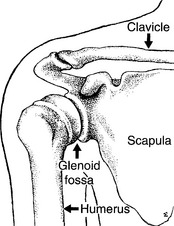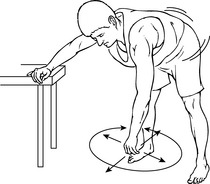Shoulder Instability, Posterior
Common signs and symptoms
• Numbness or paralysis in the upper arm and deltoid muscle from pinching, stretching, or pressure on the blood vessels or nerves
Causes
• Powerful muscle twisting or violent muscle contraction, such as with an epileptic seizure or electrocution
Preventive measures
• Maintain appropriate conditioning that includes shoulder strength, flexibility and endurance, and cardiovascular fitness.
Possible complications
• Damage to nearby nerves or major blood vessels, causing temporary or permanent weakness, paralysis, numbness, coldness, and paleness
• Fracture or joint cartilage injury as a result of the dislocation or as a result of the reduction of the dislocation
• Repeated shoulder dislocations, particularly if the previous dislocation is not healed completely or is not appropriately rehabilitated; most recurrent dislocations are caused by repeated injury.
Medication
• Nonsteroidal antiinflammatory medications, such as aspirin and ibuprofen (do not take for 7 days before surgery), or other over-the-counter pain relievers, such as acetaminophen, are often recommended. Take these as directed by your physician, and contact your doctor immediately if any bleeding, stomach upset, or signs of an allergic reaction occur.


 shoulder pendulum
shoulder pendulum







